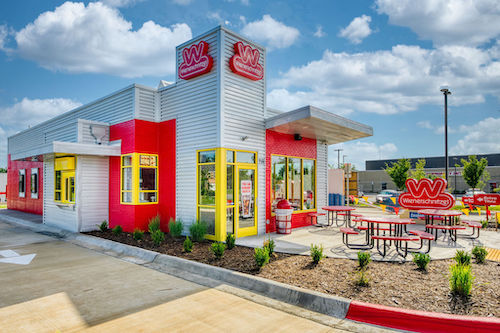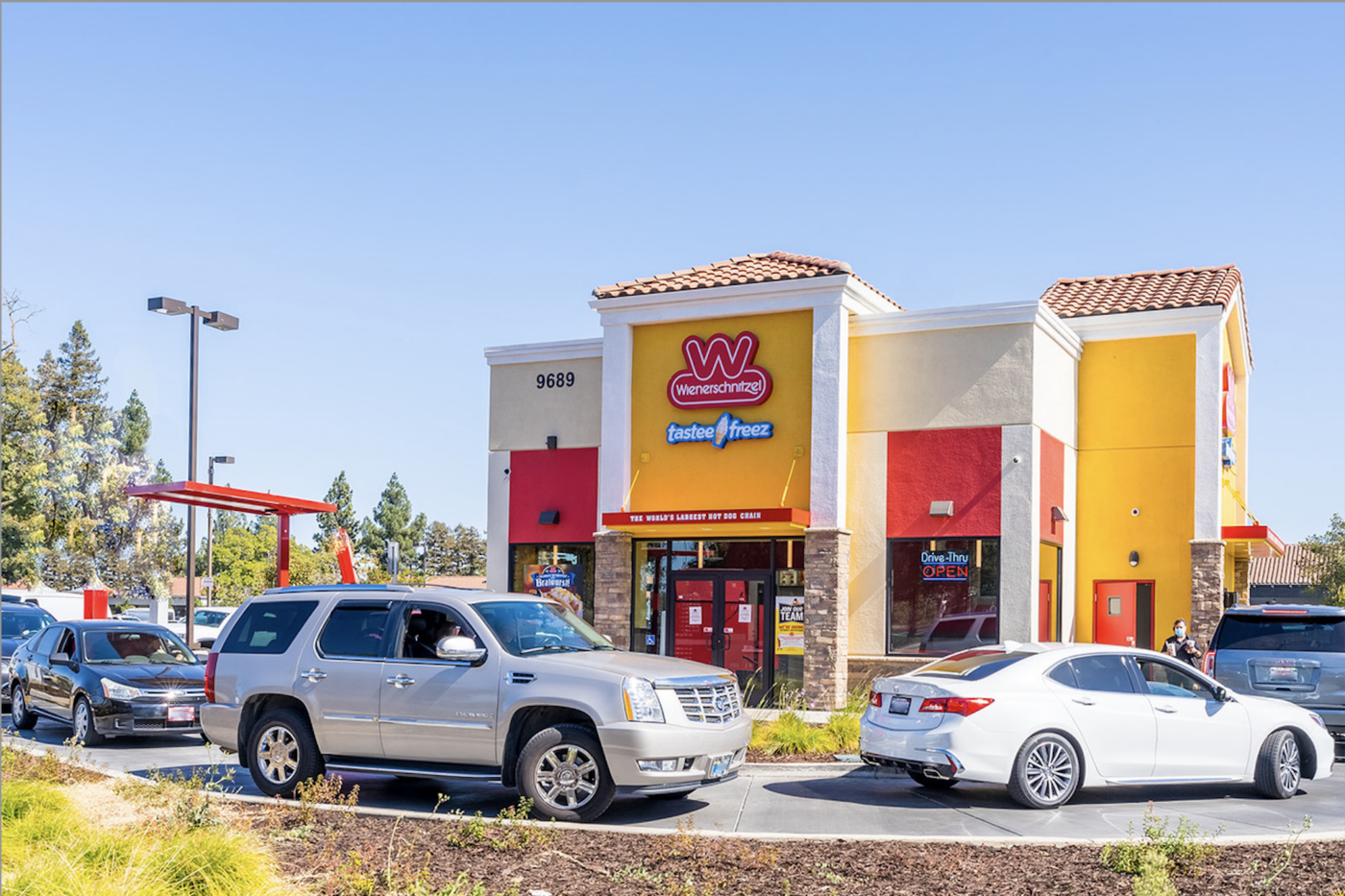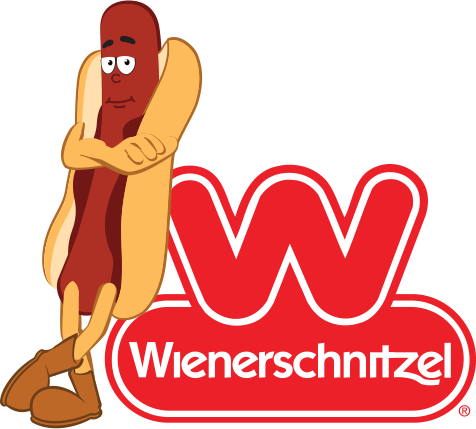Insight into why the iconic hot dog franchise continues to thrive in challenging times
Wienerschnitzel, the world’s largest hot dog franchise, has helped entrepreneurs thrive in a business that families rely on for fast, delicious, and affordable food. In recent months, we have seen how invaluable it is to be part of a franchise system like Wienerschnitzel. By mobilizing the entire support platform to help franchisees continue to thrive during the recent pandemic, their stores welcomed guests in their communities to continue to feed their families at an affordable price in time of need.
For Rusty Bills, Vice President of Operations at Wienerschnitzel, the crisis reflects the true value proposition of franchising: entrepreneurs will not be in business by themselves, and in good times and bad, they will receive the support they need to thrive and be successful in business. In this interview, Bill shares everything from what makes Wienerschnitzel’s franchising model attractive, to what makes the iconic hot dog franchise a wise investment.

How are things going with Wienerschnitzel overall? Before the pandemic you were having nine years of same-store sales increases.
Bills: I think what’s happened here to our world in the last four or five months, no one could have ever predicted this. What I do know is the last 8 to 10 years we’ve taken advantage of running our restaurants effectively, and emphasized great collaboration between our marketing and operations teams. We’ve developed some cool concepts, empowered multi-unit operators, and built the foundation that when something drastic like this happens, we have to pivot. That’s an advantage we have as a small, privately family-owned company. None of us have the experience to understand what a pandemic was, but we knew we had to adapt, follow guidelines, and persevere and push through. Little did we know that after a couple of bumpy weeks when all this started that we would flourish and have 16 straight weeks of historic record sales within our brand.
Moreover, what’s fascinating about us pre-Covid is that we haven’t skipped a beat. We already had our bundle deals in our back pocket, so we didn’t have to create something for the new customer base. We launched new programs and didn’t have to adjust our marketing because we already had the low food costs items, high profit, and the bundle items that made people buy them. As a result, we have a lot of opportunities where now if someone orders a Crowd Pleaser bundle, the crew and staff members can upsell to make it even more profitable. For example, if someone wants to upgrade from an original hot dog to an all-beef hot dog or make regular fries chili cheese fries, those are opportunities that we’ve created with our menu engineering to maximize further profits because we have all of those products.
One-third of Wienerschnitzel’s restaurants do not have dining rooms. In the beginning of the pandemic when you had to close down dining rooms, what was the impact on operators?
Bills: One really cool facet of our business is that we still have the first store that founder John Galardi, created in California, and it still thrives today without a dining room. So from the very first stores, we have A-frame models all the way up to store No. 297 where they don’t have a dining room. The benefit of that is we’ve flourished over the 59-plus years we’ve been in business. So, when the Coronavirus hit, and everyone had to immediately shut down dining rooms, it obviously impacted some of the bigger brands a lot more dramatically than us. We didn’t have to panic and create new systems because one-third of our brand was already in the pandemic model, which meant they flourished on drive thru, walk up traffic, and third-party delivery.
Wienerschnitzel is not only the largest hot dog chain in the country, it has an iconic following of people who love the products and food. What’s special about your brand’s culture?
Bills: What I love about the culture, and what’s made me remain passionate about working for this company, is that we are a legacy brand that has been around for nearly 60 years. We are proud to be a small, private family-owned company. And as a result, we are nimble and able to pivot when necessary. We also walk the talk; practicing family values, are engaged in many community-oriented and charitable programs, playful, honest and honor all those values within our company. In that same vein, we are passionate about our franchise community and care very much about our franchise owners, as well as their crew members, because without their success we don’t have success.
Additionally, we still have the same craveable food that our customers love. Granted, we have grown the menu since our founding and have flavorful, comfort food that consumers want like corn dogs, chili fries, and hot dogs. While we’re proud to be the world’s largest hot dog chain, we know that there are other brands who sell the same thing, however, they are not Wienerschnitzel. We use that craveable chili sauce on several different products on our menu, which keeps people coming back for years. Ultimately, our culture is highly valuable to us because it’s not just an act. We believe in those words and what those values mean to our brand. It’s great to be part of a legacy brand.
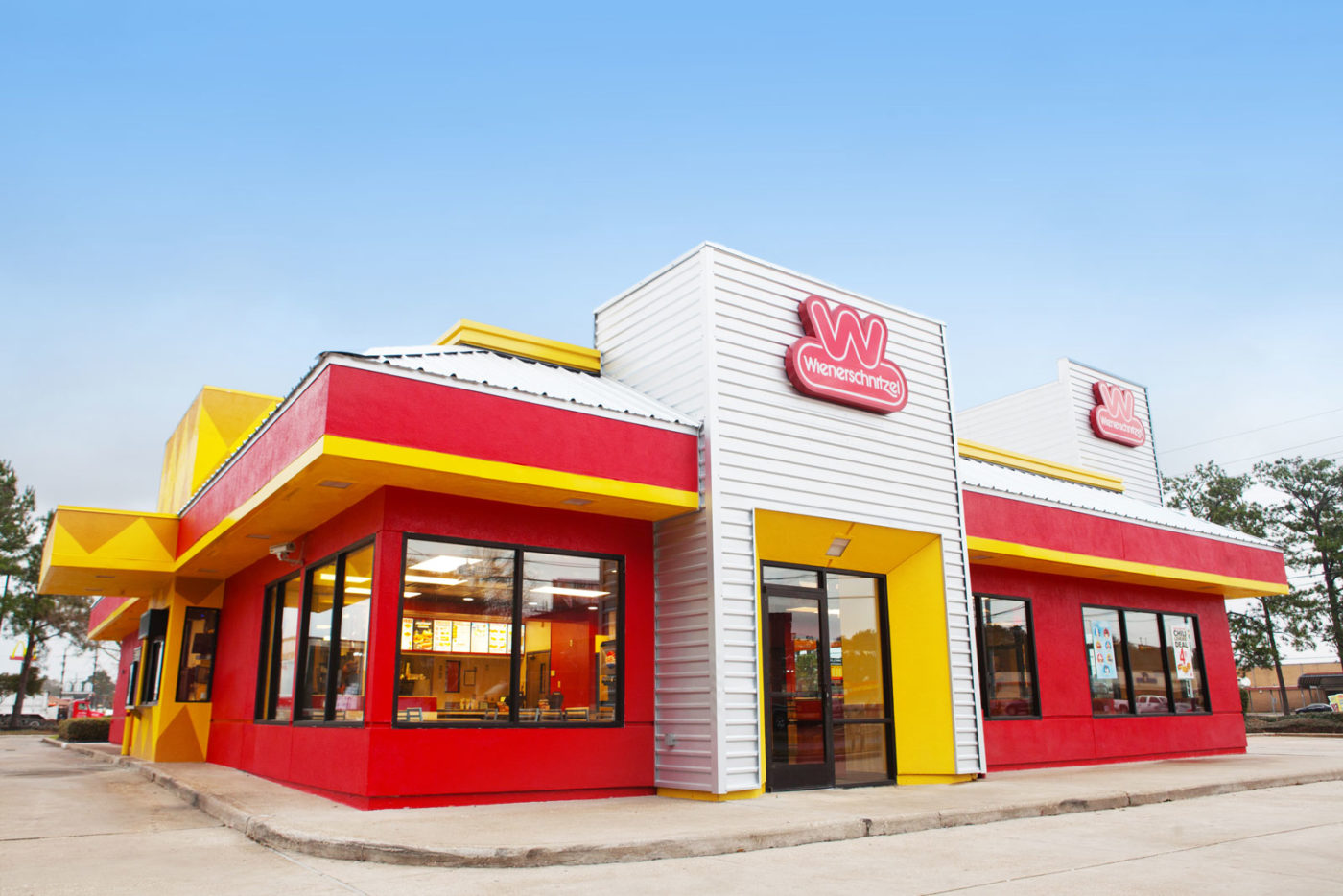
One thing entrepreneurs pay attention to when investing in a business opportunity is making sure the model is profitable. Wienerschnitzel’s food costs are significantly low compared to other food brands. Can you talk about why that’s important for someone when they’re looking at a food franchise?
Bills: First, a lower food cost model is something that we prioritize because we know that food costs are one of the strong pillars that allows us to be profitable for our franchise community. Secondly, we hold our vendors accountable for raw materials. Thirdly, we know that we have products, such as a hot dog, corn dog, fries and soft serve that are historically lower food cost models as it is. We also focus on key attributes like proper portioning. This is why we have portioning systems in place to ensure we deliver that one perfect executed ounce of chili on a product, so you are less likely to over portion. We don’t need to waste products because we assemble to order, and when you do that, you’re not pre-making a lot of food where if someone orders it you’re going to serve it cold or throw it away if it isn’t ordered.
All of that contributes to food costs, and having lower food costs is really what helps separate us from the competition because there are other food brands who have higher volumes. We’re very specific when we think about coupon offers and engineering new promotions because we work specifically about what the food costs are. Now, we don’t want to make every decision based off of that because we need to capture an audience that will also be captivated by a price. However, what we do feel proud about is our focus on lower food costs as a critical asset to our company.
What’s been driving same-store sales both before and after the current crisis?
Bills: I’ve been with the company for 13-years and have been in a position of leadership for six years. I think our same-store sales growth over the last decade started with changing our marketing program about five years ago. When our CMO came on board we knew we had to collaborate. This is how our operations and marketing teams began working closely together. It was his vision and ideas, but we have shifted gears from what we were marketing before to more of an aware, fun brand. Today, our marketing programs are edgy, fun, and exciting with new products. Everyone knows that good operations provide excellent food quality in a clean atmosphere with great customer service. We know we have good food quality because our food is assembled to order. But one of our biggest opportunities was to provide a better guest experience. This includes owning our image, incentivizing franchising partners to reinvest in their restaurants – prior to needing it, and keeping the dining room and parking lot sparkling clean.
Additionally, the guest experience comes from the franchisees and employees, who dictate what the experience is going to be from the speaker post to the front counter. So how they engage is paramount. Are they doing proper upselling but not robotic? Are they friendly? Are they understanding when someone is challenged with time or have kids in the car? How are they handling that guest interaction? So, we’ve developed some programs that help monitor that, we incentivize great service, which we highlight and promote within the brand and celebrate individuals who go above and beyond.
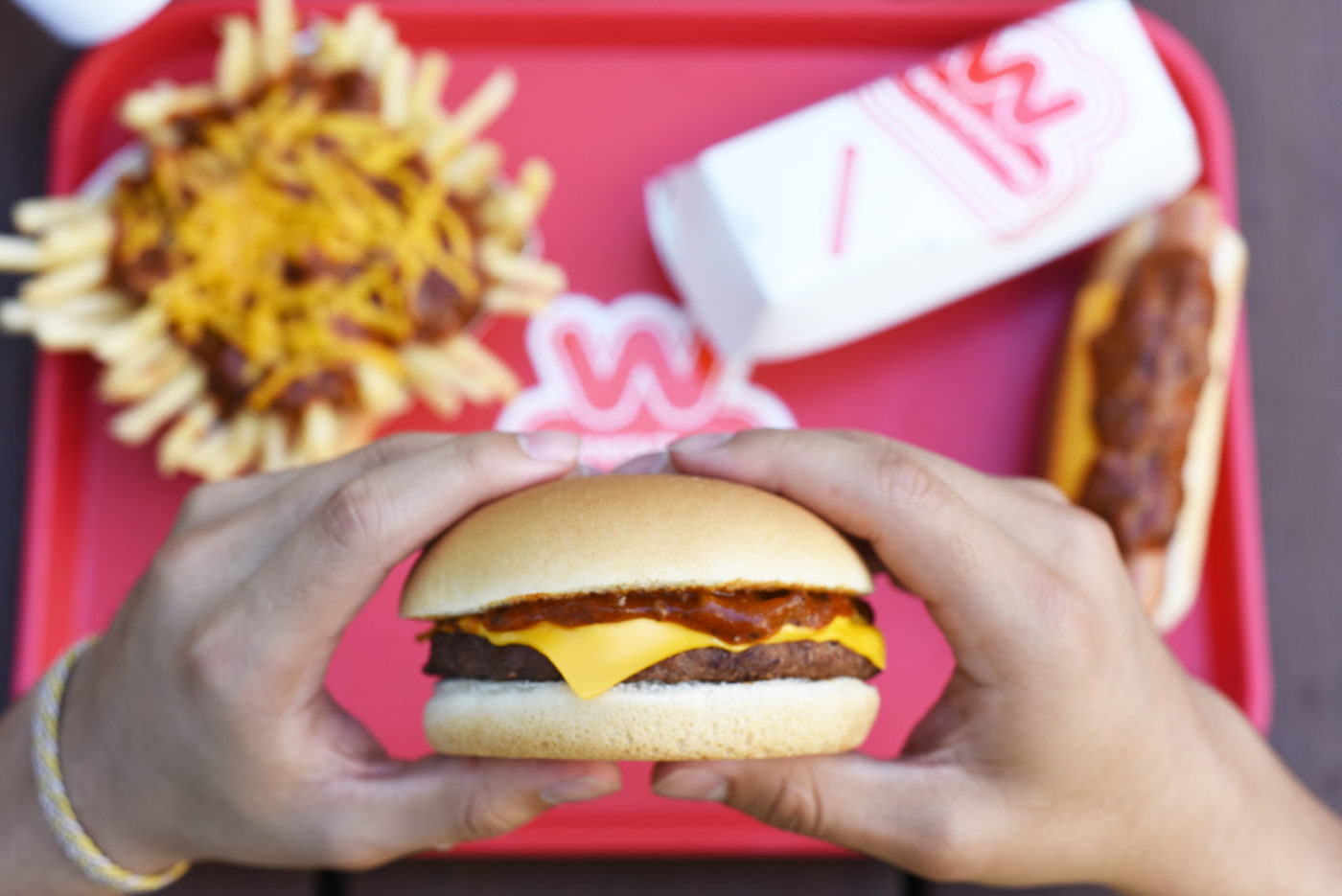
Certainly the guest experience and training make a huge impact on sales, but also Wienerschnitzel has integrated Tastee- Freez and expanded into different dayparts throughout the day. Can you talk a little about that?
Bills: Absolutely. I think our sales mix is what we’re proud of. We partnered with Tastee-Freez in the late 1990s and bought the brand in 2003. This gave us an expanded, flavorful dynamic – a soft serve dessert menu – to our guests, while providing an add-on revenue stream to our franchise partners. In the early years, we offered a sundae, dipped cones, soft serve cones and a Freez-ee shake. We’ve since rolled out flavorful dips you can’t get anywhere else from caramel to banana to cake batter to now a pumpkin spice. We’ve even shook things up and made sure that we can get flavorful, robust big shakes in the hands of our consumers and it won. We’ve put together flavorful, branded shakes with candy and cereal companies including Reese’s, Cinnamon Toast Crunch, Trix, Oreo’s and more. As a result, our Tastee-Freez sales have incrementally gone up 20 to 25% year-over-year over the last four years. We’ve really elevated the passion with our soft serve, which has elevated our nighttime business and our snacks for the afternoon to early evening daypart. Our focus on that has really helped us because we want to be the brand that people go to at any time of day for an amazing shake.
The menu at Wienerschnitzel is simple, clean and easy to read, but it’s also sophisticated and well engineered. What is it about the menu engineering that drives profitability?
Bills: First, we’re very proud of the fact that we work closely and collaborate with our marketing and operations teams. We want our menu to look good and be attractive. One of the foundations we have for our menu engineering is that we know that the chili cheese and the chili dog got us into the big dance, which is the reason why we are where we are. The chili dog is iconic and that is the product that gets customers into our restaurants. As a result, we’ve looked at cross utilization of our core ingredients. We utilize products that will go on a dog, burger or fries. I like the idea of having a variety of fries. They are low cost, and when you flavor those fries they make a great sales photo. And when they’re set at a good price point, they have good value that customers will follow.
Additionally, we also pride ourselves on our bundle item deals. About 10-years ago, we launched our ‘five-for-five’ program. Granted, the price has evolved a bit over the years, and not because of food costs, but someone looking at the menu board with a family can order a bundle — four chili cheese fries, four chili dogs and four corn dogs — which is $15. At Wienerschnitzel, we have something for everyone, including combo deals. However, we love our bundles because they are easy to make and are operationally executable because we cook the product that we sell. When we made this promotion, we had to think about how this would work in the kitchen because we don’t want any burn out. This is why we’ve re-engineered our kitchens and have various equipment that help execute and streamline our menu.
Who is the ideal franchise owner that really enjoys owning and scaling a Wienerschnitzel franchise?
Bills: We have a great variety of franchise owners, which makes us thrive in our culture.
The people we love are those who have a passion for the food business as well as a passion for understanding operational excellence in a restaurant. If you don’t have any restaurant experience, you will quickly come to see how operationally friendly and efficient Wienerschnitzel is. We also look for people who value heritage, community, family and fun. Having said that, I think someone who understands that you need to get your hands in the kitchen working is essential to your success. So, for the people who embark on our brand, we hope that they not only take an investment interest, but also a vested interest in working in and understanding the restaurant because when there is a problem they will have to solve it.
Additionally, we want people who work well with the home office, Support Center. We want a franchisee who’s involved because the franchisor is very involved and it’s a partnership. It’s a partnership from the hand holding from when Ted works with them in the very beginning, through site selection, training to grand opening and beyond. When you franchise with Wienerschnitzel, you are with the operations team forever. Those are the kinds of relationships we thrive on and love to build moving forward to help our franchise owners thrive in the environment.
Want to Learn More?
If you are thinking that there must be a silver lining to this epidemic and you are able to think several months ahead, now is an excellent time to research and learn more about investing in a proven Wienerschnitzel business for your market.

